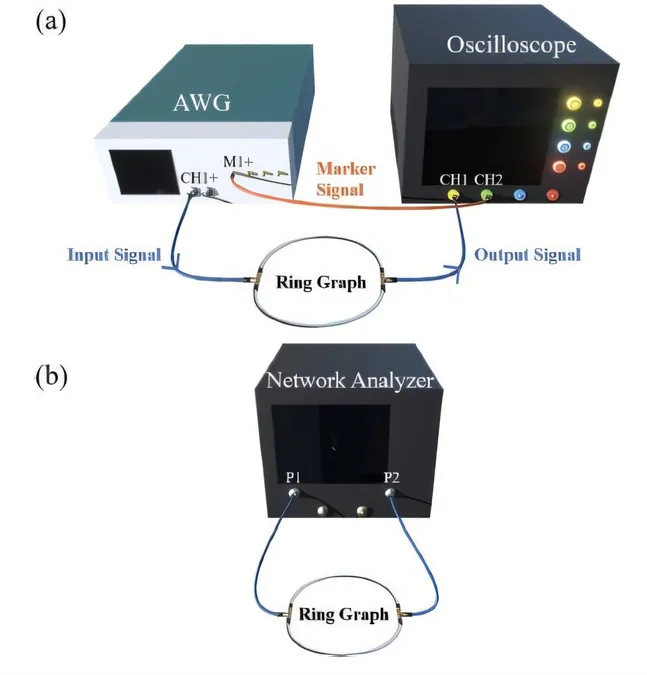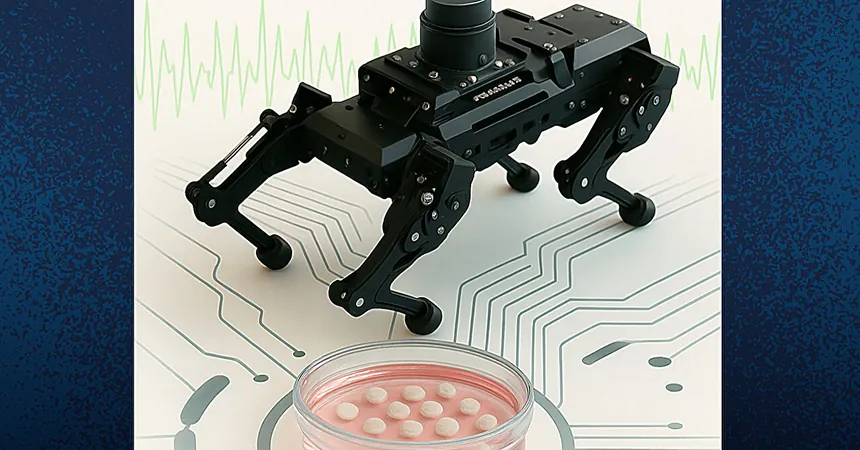
Revolutionary Breakthrough: Cholesterol Drug Restores Brain Barrier Function in 22q11.2 Syndrome
2025-08-25
Author: Arjun
Groundbreaking Research Unveils Potential Brain Health Solution
A recent study from the University of Pennsylvania and the Children’s Hospital of Philadelphia has unveiled a stunning discovery: a cholesterol-lowering drug might restore critical brain barrier function in patients suffering from 22q11.2 deletion syndrome (22qDS), potentially easing debilitating symptoms tied to this genetic disorder.
The Mystery of Mitochondrial Dysfunction
Researchers have linked mitochondrial dysfunction within the blood-brain barrier (BBB) to the onset of neuropsychiatric diseases found in patients with 22qDS. This condition, also known as DiGeorge syndrome, is notorious for significantly increasing the likelihood of severe psychiatric disorders, including schizophrenia and psychosis.
Understanding the Blood-Brain Barrier
The BBB acts as a critical gatekeeper, protecting the brain from harmful substances while allowing vital nutrients to pass through. When this barrier falters, it can lead to severe neurological disorders, making its proper function vital for overall brain health.
The Alarming Link Between 22qDS and Neuropsychiatric Diseases
Individuals with 22qDS face staggering risks; they are 25 times more likely to experience psychotic episodes, and many develop schizophrenia. Researchers had previously identified that BBB integrity is compromised in these patients, prompting questions about how mitochondrial problems could exacerbate these issues.
The Role of Collaboration in Scientific Discovery
According to Dr. Jorge Iván Alvarez, one of the lead authors of the study, this collaborative effort sheds light on the complex interplay between mitochondrial health and BBB functionality. 'By bridging our insights on these two areas, we’ve made significant strides that could transform treatment approaches for those impacted by 22qDS,' he explained.
Evidence of a 'Leaky' Blood-Brain Barrier
The team discovered that the BBB in patients with 22qDS displays signs of impairment, leading to a 'leaky' barrier. By studying stem cell-derived brain endothelial cells, researchers could pinpoint the deficits influencing brain health.
A Promising Treatment: Repurposing Bezafibrate
The research further revealed that bezafibrate, currently an FDA-approved cholesterol drug, not only improved BBB function but also enhanced social memory in preclinical models—offering hope for treating abnormalities linked to both BBB dysfunction and schizophrenia.
A Beacon of Hope for Neuropsychiatric Disorders
While this research specifically focuses on 22qDS, the implications of these findings could extend to a broader range of neuropsychiatric conditions. The team is hopeful that with adequate clinical trials, this groundbreaking repurposing of existing medication could lead to revolutionary advancements in treatment for numerous patients facing similar challenges.



 Brasil (PT)
Brasil (PT)
 Canada (EN)
Canada (EN)
 Chile (ES)
Chile (ES)
 Česko (CS)
Česko (CS)
 대한민국 (KO)
대한민국 (KO)
 España (ES)
España (ES)
 France (FR)
France (FR)
 Hong Kong (EN)
Hong Kong (EN)
 Italia (IT)
Italia (IT)
 日本 (JA)
日本 (JA)
 Magyarország (HU)
Magyarország (HU)
 Norge (NO)
Norge (NO)
 Polska (PL)
Polska (PL)
 Schweiz (DE)
Schweiz (DE)
 Singapore (EN)
Singapore (EN)
 Sverige (SV)
Sverige (SV)
 Suomi (FI)
Suomi (FI)
 Türkiye (TR)
Türkiye (TR)
 الإمارات العربية المتحدة (AR)
الإمارات العربية المتحدة (AR)